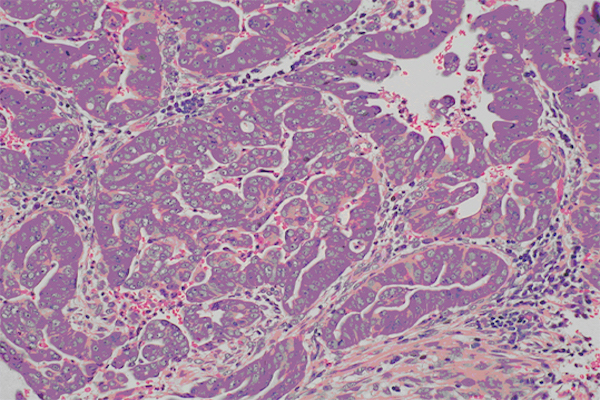The ornithine decarboxylase, NO-synthase activities and phospho-c-Jun content under experimental gastric mucosa malignancy
Abstract
Ornithine decarboxylase is the first and key regulatory enzyme in synthesis of polyamines, which are essential for cell proliferation and differentiation, so its aberrant regulation is reported to play a role in neoplastic transformation and tumours growth. That’s why, there were analysed some major links of metabolic pathways that are closely related to tumorigenesis: ornithine decarboxylase, and the NADPH-dependent enzyme nitric oxide synthase, the nuclear phosphoprotein c-Jun, that could play an important role in the development of gastric cancer malignancy.The gastric carcinogenesis was initiated in rats by 10-week replacement of drinking water by 0.01% N-methyl-N'-nitro-N-nitrosoguanidine solution, at the same time they were redefined on the diet containing 5% NaCl. After this period expiry the animals were fed with standard diet till the end of the 24th week. The gastric mucosa cells were extracted at the end of the 4th, 6th, 8th, 10th, 12th, 18th and 24th week and underwent biochemical examinations. It was established the elevated phospho-c-Jun content, ornithine decarboxylase and inducible nitric oxide synthase activities from 6th to 24th week of gastric cancer development compared to the control references. The increasing of ornithine decarboxylase activity could probably be caused by the growth of phospho-c-Jun, it is also belonging to an ornithine decarboxylase transactivation effects. Thus, it was shown that the increase of ornithine decarboxylase and inducible nitric oxide synthase activities, phospho-c-Jun and nitrite-ions accumulation in gastric mucosa epithelial cells were associated with the gastric malignant progression. The complex relationships between the examined enzymes and transcription activator that pointed to an aggravation of pathological disturbances due to reciprocal action between ornithine decarboxylase and c-Jun and nitric oxide synthase participation.

Downloads
Published
Issue
Section
License
Copyright The Author(s) 2017. This article is published with open access by BioMedPress. This article is distributed under the terms of the Creative Commons Attribution License (CC-BY 4.0) which permits any use, distribution, and reproduction in any medium, provided the original author(s) and the source are credited.
